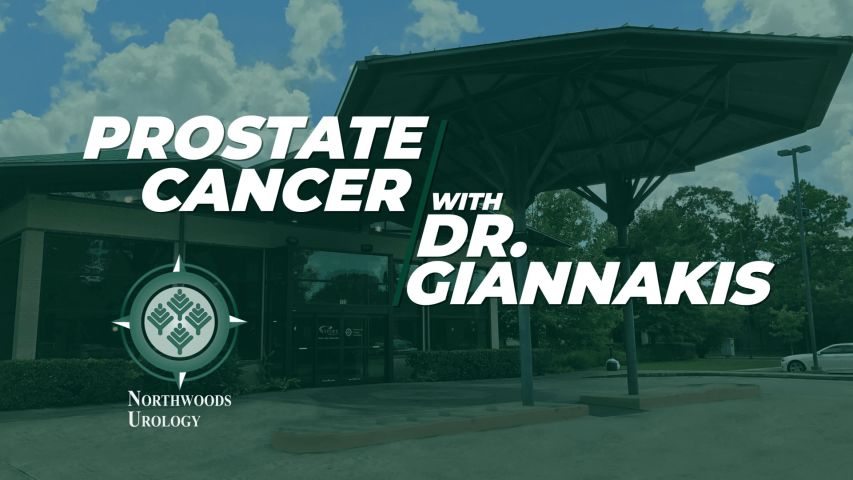Transcript of Video
Hi, I’m Dr. John Giannakis from Northwoods Urology, and today we’re gonna talk about prostate cancer. Prostate cancer is a malignancy or cancer in the prostate gland, which males have, females do not have. And it is the most common cancer that a male can get.
There are no known causes of prostate cancer, but it is associated with a western diet, and it’s more common in African Americans rather than white males. Unfortunately, prostate cancer, unless it has metastasized, causes no symptoms. So the symptoms that males get will get because of an enlargement of the prostate, which is frequency of urination, getting up at night, difficulty with their stream, but they are not directly related to prostate cancer. It could be benign enlargement of the prostate, or prostate cancer. It is recommended that all males over the age of 50 should get tested with a digital rectal exam, and a blood test, which is called the PSA. However, if you have a family history of prostate cancer, you should get your initial checkup at age 40. The initial recommended test for prostate cancer is a blood test, which is a PSA, and a digital rectal exam.
If there are additional findings or abnormalities, there are several genetic tests that we can do to further differentiate or evaluate if further treatment is needed or further diagnostic tests are needed. Prostate cancer is the most common cancer in men. Last year, over 20,000 men in the United States died of prostate cancer. Having said that, most men that get prostate cancer will die of unrelated causes. So it is very important to see a board certified urologist, number one to see if you are at risk of prostate cancer, number two, if you are at risk, to make the diagnosis, number three, if you make the diagnosis, do you need treatment or can you just be followed without treatment? And number four, if you need treatment, are you in the appropriate place and hands to get the treatment necessary.
Treatment includes active surveillance, which basically means, you have cancer but it’s low risk and we just follow it. Or, if you treat it, there’s several treatments including removing the prostate, which is done robotically with a da Vinci robot. Radiation therapy, which is an outpatient nine week treatment course, or other testing like high intensity frequency ultrasound, which basically obliterates the cancer through a heating process, or cryosurgery, which obliterates the cancer through a freezing process. If you’re a male, and half the population is, and you have a family history, and you’re age 40, or if you don’t have a family history and you’re age 50, I strongly recommend that you have an initial testing, which can be done at your primary care physician’s office.
If there are any abnormalities or any doubts, then call Northwoods Urology Associates and make an appointment to see one of our board certified urologists.




